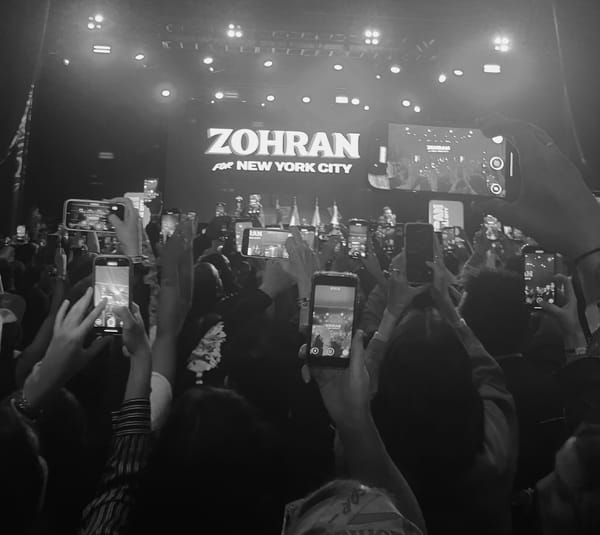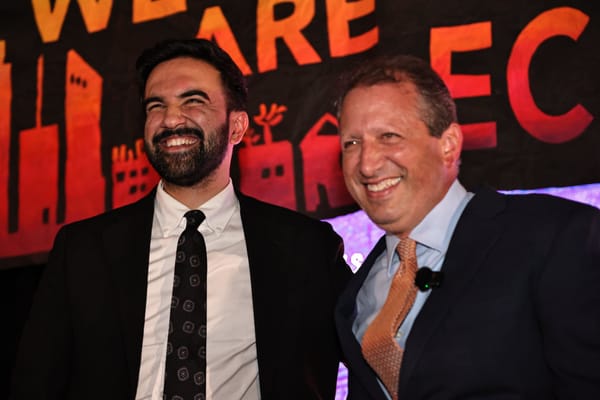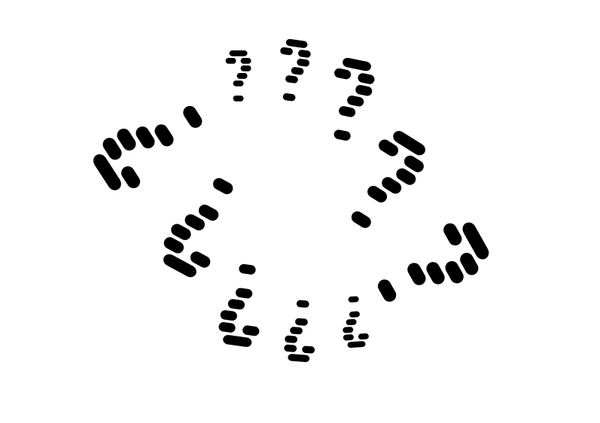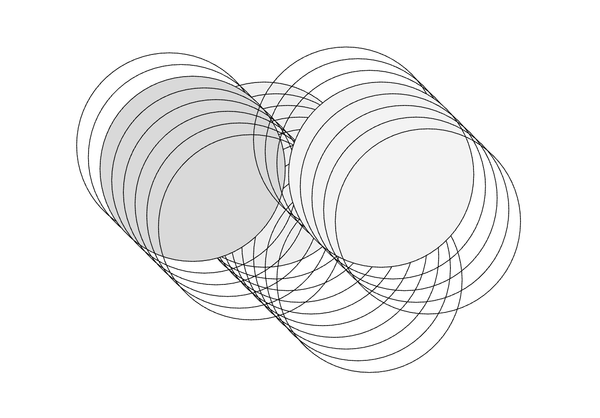What are we supposed to do?
Four options for action under the weight of the world

Before we do anything, I think we should be kind to ourselves about what’s already been done.
On this planet, we developed consciousness at the same time that the world developed consciousness about climate change, we started to make decisions as the people in charge made decisions to send this planet towards collapse. Humans of the past lived and died without the fate of the world on their conscience. Humans in the future will live and die with the certainty of the world they’ve inherited. The people alive today, and particularly our mirror generation, are the only ones in human history to experience this transition. There has never been and will never be another set of people that bears the weight of the choice and feels the contortion.
In America, we are in a political implosion that is not unprecedented in its total chaos or oppression, but is unprecedented in many of its features. The party in power is autocratic, messianic, and fascistic while the leadership of the opposition party are collaborators; our electoral system has been sold to the highest bidders; the already anti-democratic courts are staffed with corrupt and anti-democratic enablers. Our information systems have collapsed, replaced by digital networks owned by right-wing oligarchs designed to agitate, sell, and control — and now serving as an extension of the presidents ideological regime. Pillars of civil society are decimated, the remaining ones in thrall to philanthropic whims and failed ideas of bipartisanship, and true leaders – those necessary models of resistance – do not exist or are still unknowns.
These are the conditions. No one has lived them before. We should allow ourselves some grace for that. It would be understandable to do nothing besides cope.
And yet: most of us at least some of the time, and some of us most of the time, wish we could do something to change things, something to help others, or something to help ourselves. We may not be responsible, but we also aren’t incapacitated.
I don’t want to tell you what you’re supposed to do, but I want to share what I will try to do. I am sharing because people have asked and, mostly, because I think saying that we will do something is the best way to actually start doing them. I will try to do these things because (1) I believe they are strategic, (2) I believe they are morally right, or (3) I believe they will feel good. Often, I think these things will be all three.
Grow visionary politics:
To the extent that we thrive beyond this crisis, we must have a vision for the future that we start growing now. I firmly believe that a better life for people in this country will come only from an agenda that poses a real alternative and a demonstration of its viability – even in bits and pieces – in smaller contexts. I want to live in a country where health care, housing, dignified work, childcare, education, safe and thriving public space, air, and water, are guaranteed and fulfilled rights. We need politics (like I wrote about here), policies, politicians, and communities that model this vision. Community and school boards, city councils, local and state governments, and congressional representation are the sites where this vision must take root. I’m fortunate to live in New York City, where we have a mayoral election that can be a clear vehicle for this growth (and I am committing to that growth), but there is invariably *some* setting for this fight wherever you are, even if it’s a “losing” one in the short term. The larger loss would be further “anti-” politics defined by what we are against, or by politics that seeks to return us to the status quo – the status quo that produced our present. And besides: it feels good to believe.
Embody noncompliance and solidarity:
I have planned and participated in many actions of this kind, but I don’t believe that symbolic disruption or breaking of municipal law in protest – temporarily blocking traffic, doorways, etc. – is particularly useful now. In part, this is because the public has understood these as hollow gestures and partly because our media fracturing has diluted their reach. But I mainly believe we ought to focus on opportunities for action that embody noncompliance with unjust policies and the entities that seek to facilitate them. Providing safe harbor to immigrants, helping to secure abortion care, teaching history and equity, recognizing and defending trans rights – these are all actions that are or may become forms civil disobedience that both symbolically and instrumentally matter. Refusing to comply with your institution or employer’s collaboration with efforts at harm and cruelty will be far braver and far more important now than a symbolic arrest at a protest. Embodying solidarity, however, will not just involve opposing a system, but also building other ones: of mutual aid, community, safety. Where the state retracts and is immune to democratic pressure, we’ll have to provide for ourselves and our neighbors as best we can.
Shame collaborators:
As far as performative action goes, however, I do believe in this one. While I don’t think the people at the core of Trumpism are vulnerable to moral pressure, their agenda is constrained by the extent to which others decide to help them. Companies, universities, religious institutions, sports teams, celebrities, and local governments, will all make decisions to either facilitate or obstruct this regime. The ones that play along should have their reputations dragged, if not because it might change their calculus now then because the future might then be able to judge their behavior more appropriately. More broadly, I think that public expressions of shame – like we saw in the last Trump administration – are part of our larger social equation of what is and is not morally acceptable. These actions may be divisive, but that’s the point: people should be forced to see a divide and move to one side of it. Heckle, film, write, post, yell, make public art. Plus: expressing righteous disgust also feels good.
Build local opposition strongholds:
Across these efforts, I’d hope to contribute to creating opposition power and identity in cities & states that can not only protect people within them, but also ultimately be a part of stopping or reversing national crises. Although I generally believe that America’s federal system, in normal times, thwarts the national solidarity required for lasting social change, it also thwarts many kinds of national policy agendas – often for worse, and sometimes for better. Beyond obstruction, states and cities could exert pressure in the other direction. Scholars Erica Chenoweth and Zoe Marks, writing in October 2022, noted this:
Across the global historical record of anti-fascist resistance and authoritarian collapse, there are no direct parallels to the deep federal tradition of US democracy. Its longstanding, decentralized and multilevel institutional form poses unique challenges for building a well-coordinated pro- democracy movement. But it may also mitigate against the consolidation of fascist or authoritarian power in the short term. Several of the wealthiest and most populous states, like New York and California, which are lynchpins in the national and global economy, have been in the firm control of center-left Democrats and seem less likely to acquiesce to an authoritarian regime overnight. At the same time, centrists have succeeded at the executive level in states not traditionally controlled by their party (such as Gov. Andy Beshear in KY, Charlie Baker in MA, and Larry Hogan in MD), suggesting potential bridge-builders or “first responders”...
…In the context of a widespread anti-authoritarian resistance movement, it will be crucial to pull these strategic structural levers – blue cities and big states – to maintain and expand spheres of influence or control, while also attending to the communities most affected by democratic unravelling in authoritarian strongholds.
Whether governors and mayors in these places will decide to bring their governing power into conflict against this regime – which Republican states and Southern ones before them have, ironically, already modeled – will depend on the populations of these places demanding it. Growing visionary politics, embodying noncompliance, and shaming collaborators are all practical parts of building a local culture of what a place stands for and what it stands against. Activating that energy through city and state representatives is the next task, both to reinforce that local identity and to do what we can to help those in other states.
I will try to do these thing with my time, with my words, with my money, with my space, with my body. And I will also do other things – try to be kind to others and myself, try to live a good life – and, to be honest, mostly do that. As individuals, we can never do enough. The goal is to spread the weight out, to pick up what you can, to get stronger, and to pass some on.



